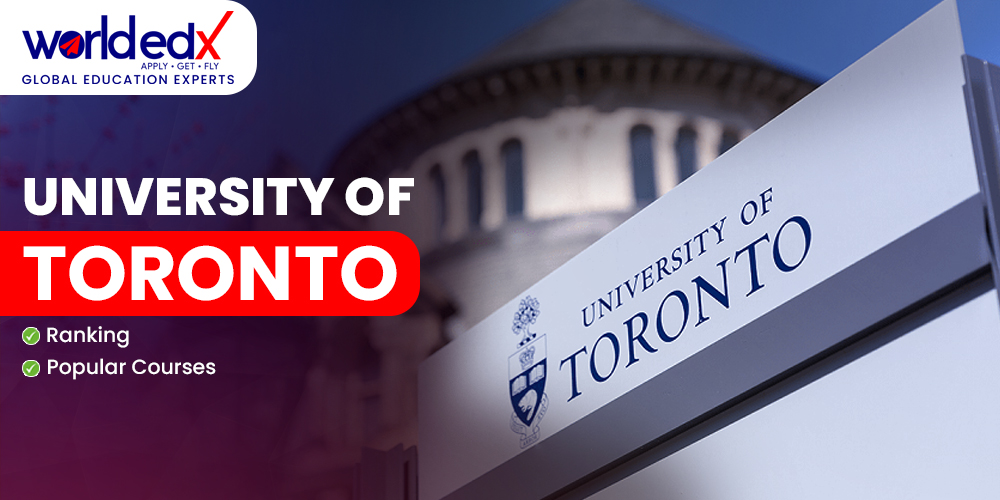Are you an Indian student aspiring to pursue a PhD in Canada in 2026?
Canada continues to be a top destination for doctoral studies, due to its globally ranked universities, innovative research programs, generous scholarships, and welcoming policies for international students. This guide covers everything you need to know about pursuing a PhD in Canada in 2026, including fees, admission process, and scholarship options.
Why Choose a PhD in Canada?

Canada has become one of the most popular destinations for international students, especially those pursuing doctoral degrees. Indian students, in particular, are drawn to Canada for its high-quality education system, globally recognized universities, and excellent research opportunities. Institutions such as the University of Toronto, McGill University, and the University of British Columbia always rank among the top universities worldwide, offering ultramodern research facilities and expert faculty in various academic fields.
One key reason to pursue a PhD in Canada is the country’s strong focus on research and innovation. The Canadian government and universities invest significantly in research funding, ensuring PhD students have access to the latest technology, labs, and academic support. Many programs offer collaboration with industry and research centers, allowing students to gain practical experience with their academic work.
Affordability is another major advantage. Compared to the US or UK, tuition fees for PhD programs in Canada are fairly lower, and many institutions offer funding packages, assistantships, or scholarships that cover tuition and living expenses. Furthermore, the welcoming immigration policies and the Post-Graduation Work Permit (PGWP) allow international students to stay and work in Canada for up to three years after completing their program, making the way for permanent residency.
Finally, Canada’s safe and multicultural environment, high quality of life, and vibrant student communities make it an ideal place to live and study. All these factors make Canada a top choice for Indian students pursuing a PhD abroad.

Top Universities in Canada for PhD
If you’re exploring top universities in Canada for PhD programs, understanding tuition costs is crucial. PhD tuition fees in Canada are affordable compared to other countries, with many institutions offering abundant funding. Below is a table highlighting some of the best universities in Canada for PhD studies, along with their approximate annual tuition fees:
| University Name | QS World Ranking 2026 | Notable PhD Fields | Approximate Tuition Fees Range (CAD/year) |
| University of Toronto | 29 | Computer Science, Engineering, Economics | 6,500 – 9,000 |
| McGill University | 27 | Biomedical Sciences, Law, Linguistics | 7,200 – 9,200 |
| University of British Columbia | 38 | Environmental Studies, Physics, Psychology | 5,500 – 8,500 |
| University of Alberta | 94 | Artificial Intelligence, Public Health | 6,000 – 8,800 |
| McMaster University | 176 | Health Sciences, Business Studies | 6,500 – 9,000 |
Admission Requirements for PhD Programs in Canada
The admission requirements for PhD Programs in Canada are as follows:

- Academic Qualifications
- Master’s degree in a relevant field
- Strong academic record (minimum 60–65% overall or GPA of 7.5/10)
- Research Proposal
- A clear, well-structured proposal (1,000–2,000 words)
- Defined objectives, methodology, and expected outcomes
- Alignment with faculty members’ research interests
- Supervisor Confirmation
- Identify and contact potential supervisors before applying
- Obtain a provisional agreement or email of support from a faculty member
- Identify and contact potential supervisors before applying
- English Language Proficiency
- IELTS Academic: Overall 6.5–7.5 (no band below 6.0)
- TOEFL iBT: Minimum total score of 90–100
- Some universities also accept PTE (minimum 60–65) or Duolingo (110+)
- Letters of Recommendation
- Generally, 2–3 academic references
- From professors or research supervisors who can attest to your scholarly abilities
- Curriculum Vitae (CV) / Resume
- Detailed CV highlighting education, research experience, publications, and presentations
- Include any workshops, conferences, or internships related to your field
- Statement of Purpose (SOP)
- 500–1,000 words explaining your motivation, academic background, and career goals
- Why did you choose that university, department, and research topic
- Transcripts and Degree Certificates
- Official transcripts for all post-secondary studies
- Degree certificates (attested or notarized copies)
- Proof of Financial Support
- Bank statements or a Guaranteed Investment Certificate (GIC) showing required funds
- Evidence of funding from scholarships, grants, or assistantships (if applicable)
- Application Form and Fee
- Complete the university’s online application portal
- Pay a non-refundable application fee (CAD 100–150)
Talk to an Expert for FREE Counselling
Top Scholarships for PhD Programs in Canada
Scholarship for Indian students in Canada significantly reduces the financial burden of pursuing a PhD. Many Canadian universities and government bodies offer ample funding to support international researchers. Below are some of the top scholarships for PhD programs in Canada available to Indian students:
| Scholarship/Fellowship | Amount (CAD) | Details |
| Vanier Canada Graduate Scholarship | 50,000/year (up to 3 years) | For academic excellence, research potential & leadership |
| Ontario Trillium Scholarship (OTS) | 40,000/year (up to 4 years) | For international PhD students in Ontario |
| UBC Four-Year Doctoral Fellowship | Covers tuition + stipend | For full-time PhD students at UBC |
| Trudeau Doctoral Scholarships | Up to 60,000/year | For doctoral students in social sciences & humanities |
| University-specific Funding | Varies | Teaching Assistantships, Research Assistantships |
* These scholarships help cover not only tuition fees but also living costs.
Also Read: All About Canada Study Destination
Conclusion
Canada stands out as an ideal destination for Indian researchers seeking advanced study. With top universities in Canada for PhD offering globally recognized programs, competitive PhD tuition fees in Canada, and rich scholarships for Indian students, it combines quality education with financial ease. The easy admission process, various research fields, and strong post-study work options further enhance its attraction. Choosing a Canadian PhD opens outstanding resources, funding support, and exciting career pathways.
Start your academic journey in Canada today. Take the first step now!







